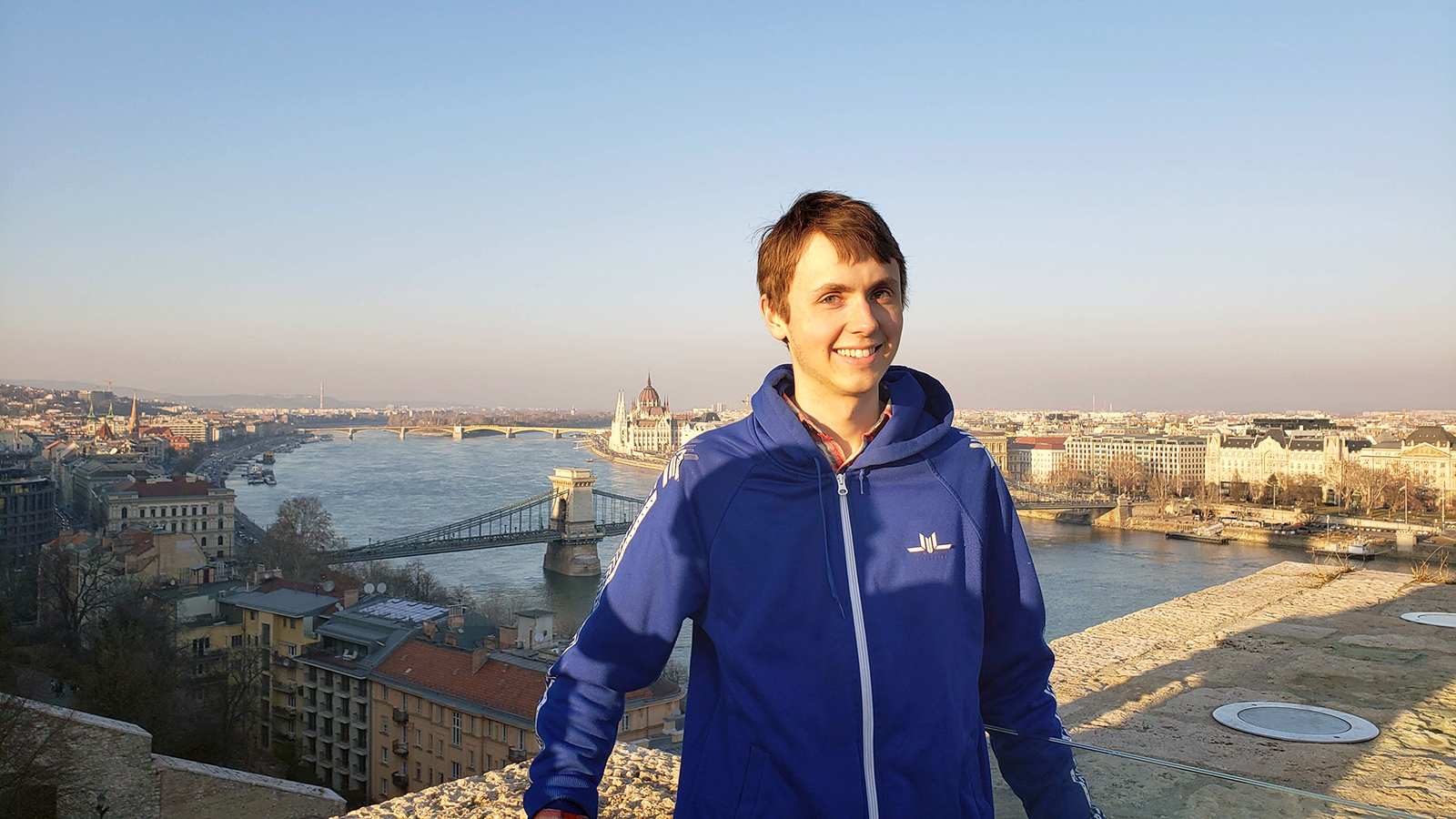The magnetism of mathematics
St. Olaf College student Jakob Hofstad ’20 loves numbers.
More precisely, he loves complex numbers — and the mathematical principles and theories that enable him to understand them.
“Math is a beautiful subject, full of complex patterns; to a non-math specialist I could compare it to someone’s love of art,” he says. “What is proven stays proven for all time, yet you can constantly build on what is known and look for even more fantastic things.”
This love for numbers is part of what drew him to St. Olaf, which has a mathematics program that has been nationally recognized for innovative and effective teaching. The Mathematical Association of America has cited St. Olaf as an example of a successful undergraduate mathematics program, and the college consistently ranks as a top producer of students who go on to complete Ph.D.s in the mathematical sciences.
For Hofstad, the college’s excellence in mathematics made it an intriguing option. But the other opportunities St. Olaf offered — like the ability to be part of a close-knit community, compete on a collegiate math team, perform with the college’s renowned music ensembles, and participate in an intensive mathematics study abroad program in Budapest — sealed the deal.
“I also liked the idea of going to a liberal arts college because of the inclusive community and being able to get to know professors,” says Hofstad, who is majoring in both mathematics and physics at St. Olaf.

Competing in problem-solving
Hofstad first joined a high school math team as an eighth grader. Since then, he’s never looked back. Hofstad says he started math competitions because “it was fun to do challenging problems and fulfilled my desire to do math since my classes were easy.”
When it came time to go to St. Olaf, Hofstad knew he wanted to keep doing competitions. In pursuit of that goal, he joined the St. Olaf Problem-Solving Group. The group meets regularly to work on practice problems, and members can attend three competitions a year, two local and one national.
For Hofstad, the Problem-Solving Group lets him keep doing what he loves. His favorite competition has been the Putnam Competition, which is the preeminent mathematics contest for undergraduate college students in the United States and Canada. “Putnam problems are a lot harder and I like the challenge,” Hofstad says.
Hofstad has participated in three different math competitions at the collegiate level. At the North Central Section MAA competition, his team won first place three years in a row and took second place last year. Hoftad has scored in the top 500 nationwide at the Putnam Competition three times, and his team has placed second and third at the Konhauser Problemfest.

But he also found his interests expanding since coming to St. Olaf. Hofstad, it turns out, really likes physics: “Physics involves lots of math. But physics also includes topics like the structure of the universe and all that weirdness. I find it fascinating,” he says.
He also joined the college’s Science Conversation, a year-long series of three linked courses. St. Olaf students read primary texts by influential figures along with secondary sources while engaging in seminar-style discussions. The program brings together students and faculty with a broad range of academic interests for a critical exploration of science within its historical, cultural, and social contexts. “It’s a lot of reading, but it’s also a lot of fun,” Hofstad says. “I learned about science through other lenses.”
A semester of mathematics in Budapest
This semester, Hofstad is exploring his academic interests in another signature St. Olaf style: by studying abroad.
He’s participating in the Budapest Semester in Mathematics, an intensive math study abroad program at College International, a Hungarian-based educational institution that focuses on international students studying in Budapest. The instructors of the Budapest Semester in Mathematics are members of Eötvös University, the Mathematical Institute of the Hungarian Academy of Sciences, and Budapest University of Technology and Economics, the three institutions known for having educated more than half of Hungary’s highly acclaimed mathematicians.
In the program Hofstad is taking five different courses: Intro to Combinatorics, Graph Theory, Intro to Number Theory, Conjecture and Proof, and Intermediate Hungarian.

With Hungary’s long history of excellence in mathematics, the Budapest Semester in Mathematics program provides a wonderful opportunity for students to dive into a wide range of topics of interest. “I knew that Hungarian mathematicians are known for their expertise in Combinatorics and Number Theory, which are two areas of math that I want to pursue,” Hofstad says.
“Through this program I can focus on specific disciplines of math and gain more opportunities to do research in the future,” he continues. “I really hope to benefit from the Hungarian style of teaching for the purpose of my own studies and to engage other students.”
Through this program I can focus on specific disciplines of math and gain more opportunities to do research in the future. I really hope to benefit from the Hungarian style of teaching for the purpose of my own studies and to engage other students.Jakob Hofstad ’20
Right now math is a central part of Hofstad’s life, and it looks like it will stay that way for the indefinite future.
“Before this semester I knew that I wanted to go into math research, and for sure I still hold this view,” Hofstad says. “I am still debating whether or not I want to be a college professor, but I will keep industry and government jobs in consideration also. I certainly will go to a graduate school, where I will be helped in my career decision.”
Regardless of what Hofstad chooses to do, one thing is clear: there will be no shortage of mathematics in his future.